Abstract:
A smart campus provides students who are geographically scattered with online tools to get access to learning resources and laboratories. Although these remote laboratori...Show MoreMetadata
Abstract:
A smart campus provides students who are geographically scattered with online tools to get access to learning resources and laboratories. Although these remote laboratories have the potential and capabilities to implement different learning experiments, most of them are configured in a static fashion, being able to serve only one experiment for a given period of time. This lack of adaptability and flexibility causes long waiting queues of students in certain overloaded remote laboratories, while others are underused. To overcome this limitation, a smart campus can incorporate new techniques and paradigms such as Network function virtualization (NFV) and Software-defined networking (SDN), which are rapidly modifying current cloud services and applications to provide autonomous and adaptive solutions. In this context, the main contribution of this paper is an SDN/NFV-based architecture with autonomic capabilities to adapt to the remote laboratories configuration according to the end-user demand. The proposed architecture will be able to optimize computing resources to ensure the users' quality of service in a smart campus with remote laboratories. A use case with a remote laboratory, based on the control of a servo motor, shows how our solution can dynamically change the lab service under specific circumstances. Finally, experiments using diverse configurations and service descriptions show the performance and suitability of the proposal.
Published in: IEEE Transactions on Learning Technologies ( Volume: 13, Issue: 2, 01 April-June 2020)
Funding Agency:
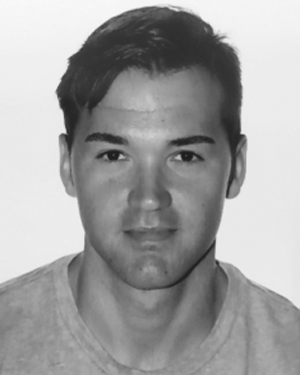
Telecommunication Software & Systems Group, Waterford Institute of Technology, Waterford, Ireland
Alberto Huertas Celdrán received the M.Sc. and Ph.D. degrees in computer science from the University of Murcia, Murcia, Spain. He is an Irish Research Council Government of Ireland Postdoctoral research fellow associated with the TSSG, WIT. His scientific interests include medical cyber-physical systems, brain-computer interfaces, cybersecurity, data privacy, continuous authentication, semantic technology, context-aware s...Show More
Alberto Huertas Celdrán received the M.Sc. and Ph.D. degrees in computer science from the University of Murcia, Murcia, Spain. He is an Irish Research Council Government of Ireland Postdoctoral research fellow associated with the TSSG, WIT. His scientific interests include medical cyber-physical systems, brain-computer interfaces, cybersecurity, data privacy, continuous authentication, semantic technology, context-aware s...View more
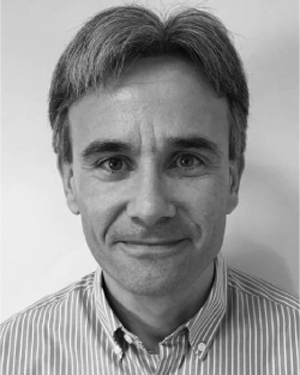
Departamento de Ingeniería y Tecnología de Computadores, University of Murcia, Murcia, Spain
Félix J. García Clemente received the M.Sc. and Ph.D. degrees in computer science from the University of Murcia, (UMU) Murcia, Spain. He is an Associate Professor with the Department of Computer Engineering, UMU. His teaching includes courses in computer networks, network management, ubiquitous computing, and mobile device programming. His major research interests focus on cybersecurity, distributed management of networks...Show More
Félix J. García Clemente received the M.Sc. and Ph.D. degrees in computer science from the University of Murcia, (UMU) Murcia, Spain. He is an Associate Professor with the Department of Computer Engineering, UMU. His teaching includes courses in computer networks, network management, ubiquitous computing, and mobile device programming. His major research interests focus on cybersecurity, distributed management of networks...View more
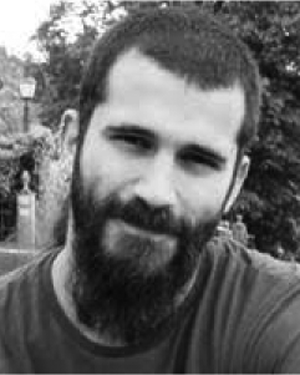
Departamento de Informática y Automática, Computer Science School UNED, Madrid, Spain
Jacobo Saenz received the M.Sc. degree in physics from the Complutense University of Madrid, Madrid, Spain. He is currently working toward the Ph.D. degree with the Department of Computer Sciences Automatic and Control, UNED, Madrid, Spain. His research interests include virtual and remote laboratories, control engineering, and heuristic algorithms.
Jacobo Saenz received the M.Sc. degree in physics from the Complutense University of Madrid, Madrid, Spain. He is currently working toward the Ph.D. degree with the Department of Computer Sciences Automatic and Control, UNED, Madrid, Spain. His research interests include virtual and remote laboratories, control engineering, and heuristic algorithms.View more
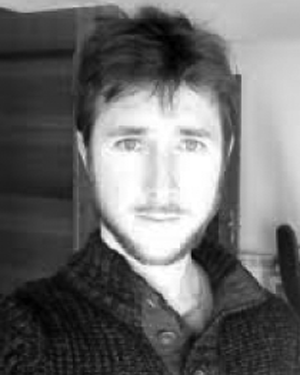
Departamento de Informática y Automática, Computer Science School UNED, Madrid, Spain
Luis de la Torre received the M.Sc. degree in physics from the Complutense University of Madrid, Madrid, Spain, and the Ph.D. degree in computer science from the Universidad Nacional de Educacion a Distancia, (UNED), Madrid, Spain. He is an Associate Professor with the Computer Science and Automatic Control Department, UNED. His research interests include virtual and remote labs, distance education, and http protocols and...Show More
Luis de la Torre received the M.Sc. degree in physics from the Complutense University of Madrid, Madrid, Spain, and the Ph.D. degree in computer science from the Universidad Nacional de Educacion a Distancia, (UNED), Madrid, Spain. He is an Associate Professor with the Computer Science and Automatic Control Department, UNED. His research interests include virtual and remote labs, distance education, and http protocols and...View more
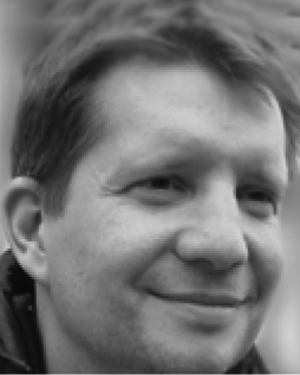
School of Engineering, Swiss Federal Institute of Technology Lausanne (EPFL), Lausanne, Switzerland
Christophe Salzmann received the M.S. degree in computer and information sciences from the University of Florida, Gainesville, FL, USA and the Ph.D. degree from the École Polytechnique Fédérale de Lausanne (EPFL), Lausanne, Switzerland. He is a Senior Research Associate with EPFL. His research interests include massive open online laboratories in collaboration with massive open online courses, intelligent and collaborativ...Show More
Christophe Salzmann received the M.S. degree in computer and information sciences from the University of Florida, Gainesville, FL, USA and the Ph.D. degree from the École Polytechnique Fédérale de Lausanne (EPFL), Lausanne, Switzerland. He is a Senior Research Associate with EPFL. His research interests include massive open online laboratories in collaboration with massive open online courses, intelligent and collaborativ...View more
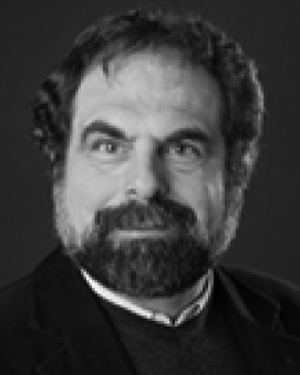
School of Engineering, Swiss Federal Institute of Technology Lausanne (EPFL), Lausanne, Switzerland
Denis Gillet received the Diploma in electrical engineering and the Ph.D. degree in information systems from the Swiss Federal Institute of Technology in Lausanne (EPFL), Lausanne, Switzerland. He is a faculty member at the EPFL School of Engineering, where he leads the react multi-disciplinary research group. During 1992, he was appointed as a Research Fellow with the Information Systems Laboratory, Stanford University, ...Show More
Denis Gillet received the Diploma in electrical engineering and the Ph.D. degree in information systems from the Swiss Federal Institute of Technology in Lausanne (EPFL), Lausanne, Switzerland. He is a faculty member at the EPFL School of Engineering, where he leads the react multi-disciplinary research group. During 1992, he was appointed as a Research Fellow with the Information Systems Laboratory, Stanford University, ...View more

Telecommunication Software & Systems Group, Waterford Institute of Technology, Waterford, Ireland
Alberto Huertas Celdrán received the M.Sc. and Ph.D. degrees in computer science from the University of Murcia, Murcia, Spain. He is an Irish Research Council Government of Ireland Postdoctoral research fellow associated with the TSSG, WIT. His scientific interests include medical cyber-physical systems, brain-computer interfaces, cybersecurity, data privacy, continuous authentication, semantic technology, context-aware systems, and computer networks.
Alberto Huertas Celdrán received the M.Sc. and Ph.D. degrees in computer science from the University of Murcia, Murcia, Spain. He is an Irish Research Council Government of Ireland Postdoctoral research fellow associated with the TSSG, WIT. His scientific interests include medical cyber-physical systems, brain-computer interfaces, cybersecurity, data privacy, continuous authentication, semantic technology, context-aware systems, and computer networks.View more

Departamento de Ingeniería y Tecnología de Computadores, University of Murcia, Murcia, Spain
Félix J. García Clemente received the M.Sc. and Ph.D. degrees in computer science from the University of Murcia, (UMU) Murcia, Spain. He is an Associate Professor with the Department of Computer Engineering, UMU. His teaching includes courses in computer networks, network management, ubiquitous computing, and mobile device programming. His major research interests focus on cybersecurity, distributed management of networks and services and interaction systems.
Félix J. García Clemente received the M.Sc. and Ph.D. degrees in computer science from the University of Murcia, (UMU) Murcia, Spain. He is an Associate Professor with the Department of Computer Engineering, UMU. His teaching includes courses in computer networks, network management, ubiquitous computing, and mobile device programming. His major research interests focus on cybersecurity, distributed management of networks and services and interaction systems.View more

Departamento de Informática y Automática, Computer Science School UNED, Madrid, Spain
Jacobo Saenz received the M.Sc. degree in physics from the Complutense University of Madrid, Madrid, Spain. He is currently working toward the Ph.D. degree with the Department of Computer Sciences Automatic and Control, UNED, Madrid, Spain. His research interests include virtual and remote laboratories, control engineering, and heuristic algorithms.
Jacobo Saenz received the M.Sc. degree in physics from the Complutense University of Madrid, Madrid, Spain. He is currently working toward the Ph.D. degree with the Department of Computer Sciences Automatic and Control, UNED, Madrid, Spain. His research interests include virtual and remote laboratories, control engineering, and heuristic algorithms.View more

Departamento de Informática y Automática, Computer Science School UNED, Madrid, Spain
Luis de la Torre received the M.Sc. degree in physics from the Complutense University of Madrid, Madrid, Spain, and the Ph.D. degree in computer science from the Universidad Nacional de Educacion a Distancia, (UNED), Madrid, Spain. He is an Associate Professor with the Computer Science and Automatic Control Department, UNED. His research interests include virtual and remote labs, distance education, and http protocols and technologies.
Luis de la Torre received the M.Sc. degree in physics from the Complutense University of Madrid, Madrid, Spain, and the Ph.D. degree in computer science from the Universidad Nacional de Educacion a Distancia, (UNED), Madrid, Spain. He is an Associate Professor with the Computer Science and Automatic Control Department, UNED. His research interests include virtual and remote labs, distance education, and http protocols and technologies.View more

School of Engineering, Swiss Federal Institute of Technology Lausanne (EPFL), Lausanne, Switzerland
Christophe Salzmann received the M.S. degree in computer and information sciences from the University of Florida, Gainesville, FL, USA and the Ph.D. degree from the École Polytechnique Fédérale de Lausanne (EPFL), Lausanne, Switzerland. He is a Senior Research Associate with EPFL. His research interests include massive open online laboratories in collaboration with massive open online courses, intelligent and collaborative systems, web-based interaction systems, distributed web 2.0 technologies, and real-time interaction over the Internet.
Christophe Salzmann received the M.S. degree in computer and information sciences from the University of Florida, Gainesville, FL, USA and the Ph.D. degree from the École Polytechnique Fédérale de Lausanne (EPFL), Lausanne, Switzerland. He is a Senior Research Associate with EPFL. His research interests include massive open online laboratories in collaboration with massive open online courses, intelligent and collaborative systems, web-based interaction systems, distributed web 2.0 technologies, and real-time interaction over the Internet.View more

School of Engineering, Swiss Federal Institute of Technology Lausanne (EPFL), Lausanne, Switzerland
Denis Gillet received the Diploma in electrical engineering and the Ph.D. degree in information systems from the Swiss Federal Institute of Technology in Lausanne (EPFL), Lausanne, Switzerland. He is a faculty member at the EPFL School of Engineering, where he leads the react multi-disciplinary research group. During 1992, he was appointed as a Research Fellow with the Information Systems Laboratory, Stanford University, USA. His current research interests include technologies enhanced learning, human computer interaction, human devices interaction, and optimal coordination of complex and distributed systems.
Denis Gillet received the Diploma in electrical engineering and the Ph.D. degree in information systems from the Swiss Federal Institute of Technology in Lausanne (EPFL), Lausanne, Switzerland. He is a faculty member at the EPFL School of Engineering, where he leads the react multi-disciplinary research group. During 1992, he was appointed as a Research Fellow with the Information Systems Laboratory, Stanford University, USA. His current research interests include technologies enhanced learning, human computer interaction, human devices interaction, and optimal coordination of complex and distributed systems.View more


